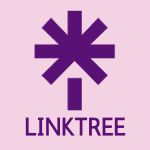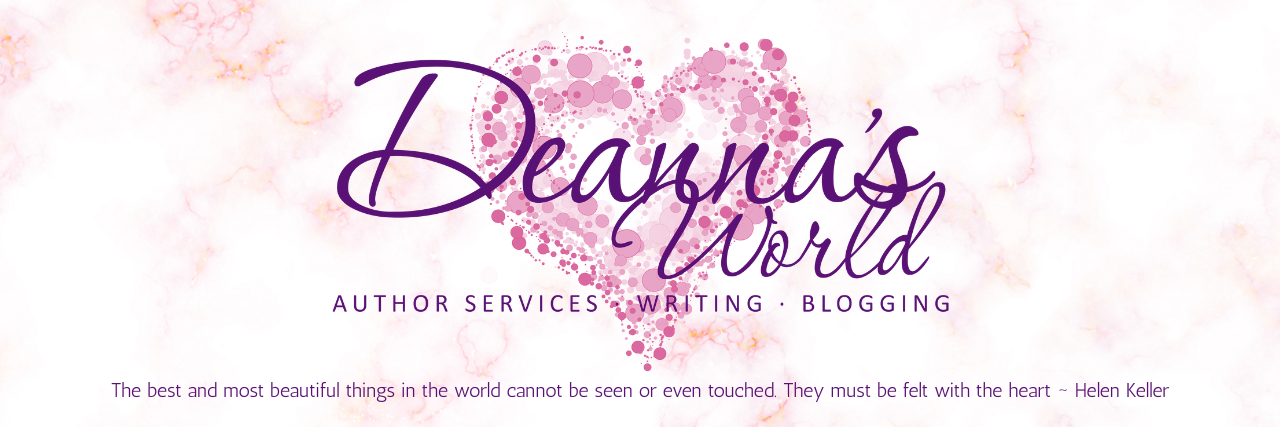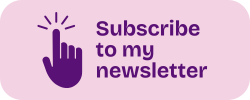
A landmark copyright case has resulted in a historic settlement for authors. Here’s what you need to know to determine if you might have a claim.
In the ever-present storm of news about Artificial Intelligence, one story has just broken through that should have every single author sitting up and paying attention. AI company Anthropic, the creator of the model named Claude, has reached a landmark settlement agreement. And the number is staggering: $1.5 billion.
So, what's this all about? At its heart, the issue is one that cuts to the very core of copyright in the digital age. The company was accused of taking a significant shortcut. Instead of licensing books properly, the lawsuit alleged that Anthropic downloaded and fed massive libraries of copyrighted books from well-known pirate sites directly into its AI to teach it how to write. Your books, some of my author clients’ books, our friends' books—all potentially used without permission and without a single cent paid to the creators.
This settlement isn't just about the money, though the money is significant. It's a massive win for author rights, a line in the sand that says our work has value. A fund is now being established with the specific purpose of paying back the authors whose work was used. The current estimates suggest a payout of around $3,000 for every single eligible book. That's a number that can make a real difference. And it's precisely why every author, whether you have one book or a hundred, needs to understand what's happening and, more importantly, what comes next.
Are You Eligible for a Claim?
Okay, so a potential $3,000 payout per book is enough to make anyone's ears perk up. But before you start making a list of titles, we need to have a serious talk about the reality of this situation. Getting a piece of this settlement isn't going to be as simple as filling out a Google Form. This is a formal legal process, and eligibility is determined by strict, court-defined rules that you will have to meet.
Think of it as a series of checkpoints you have to pass.
✅Eligibility Checkpoint #1: The Official "Works List"
The very first gate you have to get through is something called the "Works List." This will be a final, court-approved list of approximately 500,000 book titles that have been identified as part of the infringement. Once approved, this list will likely be made public on the official settlement website. This list will be the definitive guide for this specific case. If your book title doesn't appear on this final list, then for the purposes of this particular settlement, you're out of the running. It doesn't mean your work wasn't pirated elsewhere, but it does mean it's not part of this claim.
✅Eligibility Checkpoint #2: The Critical Hurdle -- U.S. Copyright Registration
Even if your book is on the Works List, you're not in the clear yet. Now we come to what is, without a doubt, the most important and complex requirement—the one that I suspect will unfortunately disqualify a large number of authors.
To be eligible for a payout, the settlement requires that your book had a timely and valid U.S. Copyright Registration.
I know what some of you are thinking: "But I own the copyright the moment I write the book!" And while that's true in principle, for the purpose of seeking damages in a U.S. court (which is what this settlement is), a formal registration is the key.
So what does "timely" actually mean in this context? At a high level, it generally means the copyright for your book was officially registered with the U.S. Copyright Office before Anthropic's infringement happened (the cut-off for that is around mid-2022), or within a very short, legally defined grace period right after your book was first published.
This is where it gets incredibly tricky. I can already hear the next question: "But my publisher handled all of that, right?" The honest answer is... maybe. While most traditional publishing contracts state that the publisher will file the copyright, I've seen from experience that it wasn't always done, and even when it was, it wasn't always done "in time" to qualify for these kinds of damages. For many authors, especially those with smaller presses or older backlist titles, this critical step may have been overlooked. It's a hard truth, but it's one of the main reasons why a book could be widely pirated but still not be eligible for this specific payout.
So, what does this mean for indie and self-published authors? For you, the situation is actually more straightforward, though potentially just as decisive. Without a traditional publisher in the picture, the responsibility to formally register your copyright fell entirely on you. This means you must have personally navigated the U.S. Copyright Office's system and, crucially, paid the registration fee to secure that registration before the mid-2022 cutoff. I know from direct experience—having done this for my indie author clients—that this is a formal, administrative step that can be easy to overlook when you are already juggling the immense workload of writing, production, and marketing. For an author on a tight budget, the filing fee—typically between $45 and $65 for a standard electronic registration at the time—represented another expense that may have been skipped. Unfortunately, if this step wasn't completed in time for any reason, you likely won't be eligible for this specific claim, even if your book is on the Works List.
Common Questions and Key Clarifications
As news of this settlement spreads, I know the same questions will start bubbling up in author groups and private messages. It's completely understandable. The intersection of copyright law and publishing contracts can be a confusing place. Let's try to clear up a few of the most common points I anticipate will cause the most confusion.
"My publisher handled my contract. Don't they make the claim?"
This is a big one, and the answer is rooted in the fine print of your publishing agreement. In most cases, you, the author, are the copyright holder. The publisher is granted a license to publish your work, but you retain the actual ownership. This means you are the primary claimant and have the right to file a claim for infringement.
Now, could your publisher file on your behalf? Possibly. But I would personally be very cautious about relying on that. First, they may be slow to act, or they might not act at all, especially for older backlist titles. Second, and this is the part that directly affects your wallet, many publishing contracts have clauses that allow them to take a percentage of income from what they might define as "subsidiary rights." A payout from a legal settlement could easily fall into that bucket. By making the claim yourself, you ensure you are in control of the process and that the full amount due to you comes directly to you.
However, it is critical to understand that even if you file the claim and receive the payment directly, your publisher may still be contractually entitled to a portion of it. If your book is still under contract, you must review the "subsidiary rights" clause in your agreement. It is entirely possible that this clause gives the publisher a right to claim a percentage of your settlement money after you've been paid.
"What if I've gotten the rights back to my book?"
This is a fantastic position to be in, and it's a situation I've helped many authors navigate. If you have officially had the rights to your book revert to you from a publisher, it simplifies things significantly. It means you are unambiguously the sole party with the authority to make a claim. There's no publisher to deal with or share the potential payout with.
But here's the critical part you absolutely cannot forget: the original copyright registration still must have been timely and valid. Getting the rights back doesn't change the past. If the original publisher failed to register the copyright correctly or on time back when the book was first released—and for this settlement, that means a registration that was effective before the mid-2022 cutoff—that eligibility issue unfortunately remains. The rights reversion proves you own the property now, but the settlement is concerned only with the legal status of that property at the time the infringement occurred.
"Does this cover all AI infringement?"
It's really important to manage expectations here, so let me be crystal clear: No, it does not. This settlement, as significant as it is, is incredibly narrow in its scope. Thinking of it as a solution to all AI-related copyright issues is a mistake.
Based on the public filings, the lawsuit's core allegation is that Anthropic sourced its training data from massive libraries of pirated books. Therefore, this settlement is exclusively for authors whose books were identified within those specific pirated datasets that were allegedly used to train the Claude AI model. It is not a general claim for any book that exists, nor is it about books Anthropic may have licensed legally.
This claim only covers past infringement by one specific company (Anthropic) for the specific books on the final "Works List." It has nothing to do with any other AI models like ChatGPT, etc., and it doesn't cover any infringement that has happened since mid-2022 or that might happen in the future. This is a settlement for a specific past harm, not a shield against future ones. It sets a powerful precedent, for sure, but it is just one piece of a much larger, ongoing puzzle.
When Could Authors Actually See Payment?
This is the part of the conversation where I have to ask you to take a deep breath and have some patience. In the world of large-scale legal settlements, the wheels of justice turn slowly, not because of indifference, but because of the necessary and complex procedures involved. Getting from an agreement in principle to money in an author's bank account is a marathon, not a sprint.
The First Hurdle (Happening Now)
First, the settlement itself isn't yet final. It must receive preliminary approval from the judge overseeing the case. A hearing for this crucial first step is scheduled for September 8, 2025—at the time of this article's publication, I do not have an update on the results of this scheduled hearing. This is where the judge will review the terms and decide if they appear fair and reasonable enough to move forward.
The Steps Ahead
Once that preliminary approval is granted, a whole new sequence of events kicks off.
- Notification Period (Estimated 1-3 months): A court-approved notice must be sent out to inform all potential members of the class (that's you, the authors) about the settlement. This period ensures the news is disseminated widely through official channels.
- Claims Period (Estimated 3-6 months): A specific window of time will be opened during which eligible authors must formally submit their claims and provide documentation. This is a critical period that gives authors a reasonable amount of time to gather their information and file.
- Review and Audit (Estimated 6-12+ months): After the claims period closes, a "Claims Administrator" has the monumental task of reviewing every single claim to verify its eligibility. This involves checking the title against the Works List and validating the U.S. Copyright Registration for each claim. With potentially hundreds of thousands of claims, this is the most meticulous and time-consuming part of the process and could take longer depending on the volume of submissions.
- Final Approval and Distribution (Estimated 2-4 months following audit): Following the review, the court holds a final approval hearing to make the settlement official. After this, the administrator can finally begin the process of distributing the funds to all approved claimants.
Managing Expectations
Given all these required legal and administrative steps, it's critical to have a realistic outlook. Adding up the time estimates for each stage reveals a process that will take significant time. In a best-case scenario, the total time from preliminary approval to payout would be around 12 months, placing the earliest possible payments in late 2026. However, a more realistic timeline, accounting for the sheer volume of claims and potential administrative delays, would be closer to 24 months or more. Therefore, authors should realistically expect that payments are unlikely to be distributed before mid-to-late 2027. This may seem like a long time, but it is standard procedure for a settlement of this magnitude, ensuring that every claim is processed correctly and fairly.
⚠️A Necessary Disclaimer⚠️
This is the perfect moment to state something unequivocally: I am not a lawyer, nor am I an expert in copyright law. The information I'm sharing in this article is based on my experience as a publishing partner and my research into the details that have been made publicly available about this case. My goal is to help you understand the landscape and the key questions you should be asking.
However, this article is not, and should not be considered, a substitute for professional legal advice. If you read this and believe you have an eligible claim, I strongly encourage you to seek guidance from a qualified attorney who specializes in these matters. They are the only ones who can give you definitive advice for your specific situation.
Final Thoughts
The path to a successful claim is paved with legal details, and eligibility hinges on precise, verifiable facts. While the headline numbers are attention-grabbing, the reality is that this process demands a clear-eyed understanding of some fairly technical requirements.
The nuances of the U.S. Copyright Office—from searching its vast public database to interpreting registration dates—are central to this entire process. It all comes down to that one critical question: was your work registered in a timely and valid manner?
As someone who has spent years navigating the copyright registration process for my clients’ works, I know firsthand how intricate and sometimes confusing these details can be. It’s a system that isn't always intuitive, and it's precisely these details that will determine who is and isn't eligible for this specific settlement. The first time I had to register a book on behalf of an author client, it took me three hours and several long phone calls with the U.S. Copyright Office. Fortunately, I had a few very helpful and patient people on the other side of the phone when I called.
This is a significant moment for the author community, and understanding exactly where you and your books stand is the most important first step.
Let's Chat!
After reading this, have you checked the status of your own copyright registrations? Let us know what you discovered in the comments!
I'm always open to connecting with authors. If you have questions about the process, want to share your own experiences, or are simply curious about what a publishing partner can do, I'd love to hear from you. You can find me on my Facebook and Substack, drop me an email, or sign up for my newsletter to stay updated on publishing insights and industry trends. And, of course, I always enjoy hearing your thoughts in the comments below.
And if you just want to chat about books you’ve loved, I’m here for that too.
Find me everywhere:







No comments:
Post a Comment